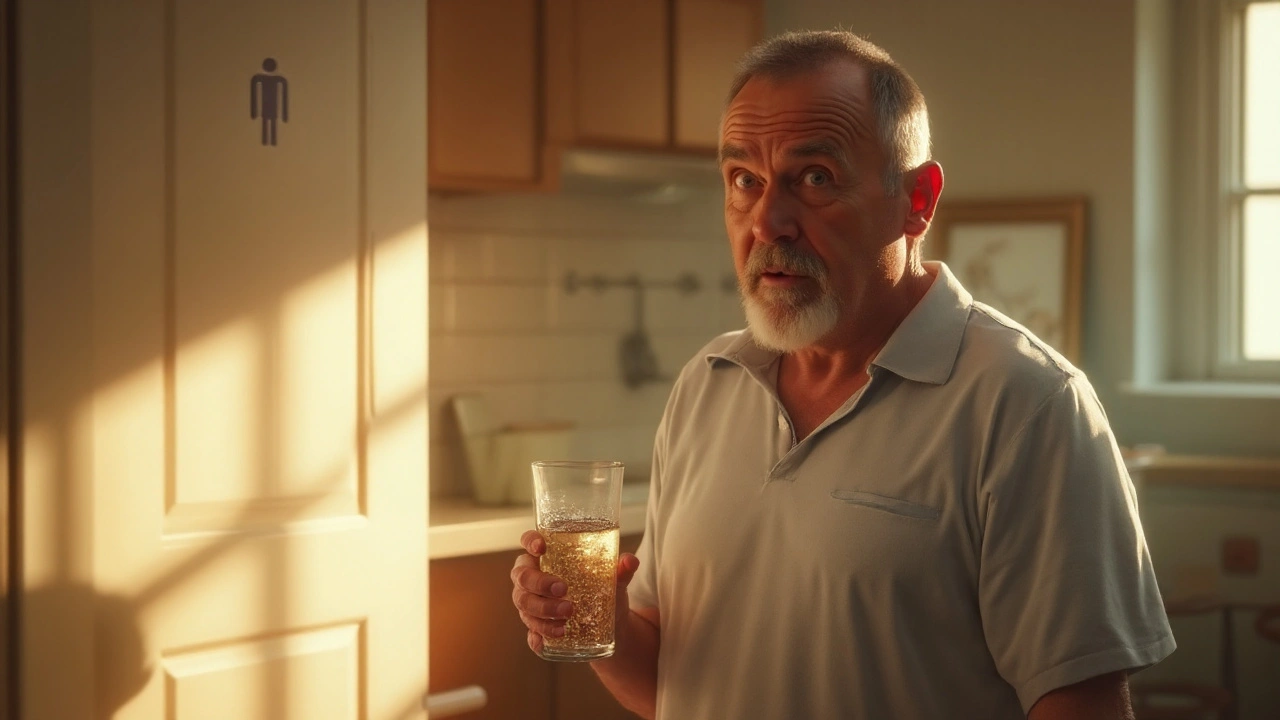Increased Thirst: Simple Answers and Practical Tips
Feeling thirsty all the time can be annoying, but it’s also a clue your body is trying to tell you something. Whether you’ve just started a new medication, are exercising more, or notice the urge to sip water even when you haven’t sweated, this guide breaks down the most common reasons and gives you clear steps to handle it.
Common Triggers for Excess Thirst
First, let’s look at the usual suspects. Dehydration is the obvious one – if you’re not drinking enough fluids, losing water through sweat, or have a fever, your brain will fire the thirst signal. Sports drinks can help replace electrolytes, but plain water works for most everyday situations.
Medications are another frequent cause. Drugs like albuterol, certain antihistamines, or smoking‑cessation meds such as varenicline can dry out your mouth and raise your thirst level. Check the side‑effect list on your prescription label; if dry mouth or increased urination is mentioned, you’ve likely found the reason.
Health conditions also play a role. Diabetes, especially when blood sugar spikes, pulls water from your cells, leaving you thirsty. Kidney problems, high calcium levels, and thyroid disorders can similarly push the thirst button. Even stress or anxiety can make you reach for a glass more often.
Diet matters too. Consuming lots of salty or spicy foods makes your body crave water to balance sodium. Caffeine and alcohol are mild diuretics, meaning they make you urinate more and can leave you feeling parched.
When to Seek Help
Most of the time, increasing fluid intake solves the problem. Aim for about 2 liters (8 cups) a day, more if you exercise or live in a hot climate. Keep a water bottle handy and sip regularly rather than gulping all at once.
But there are red flags you shouldn’t ignore. If you notice:
- Unexplained weight loss
- Frequent urination, especially at night
- Blurred vision or fatigue
- Dry skin, sores, or persistent mouth dryness
These could point to diabetes, a kidney issue, or another serious condition. In that case, schedule a doctor’s appointment and ask for basic blood work to check glucose, kidney function, and electrolytes.
Another warning sign is a sudden increase in thirst after starting a new medication. Call your pharmacist or prescriber; they may adjust the dose or suggest a different drug that doesn’t dry you out.
For people who have a chronic condition like multiple sclerosis, an unexpected burning sensation or increased thirst can signal a flare‑up or a side‑effect of treatment. Talk to your neurologist or primary care provider right away.
Lastly, if you’re pregnant, your body naturally needs more fluids. However, excessive thirst paired with swelling, severe nausea, or headaches could indicate pre‑eclampsia – a medical emergency that requires immediate attention.
In short, a little extra thirst is usually harmless, but keep an eye on the pattern and any accompanying symptoms. Hydrate smartly, watch your diet, and don’t hesitate to get a professional opinion when the thirst feels out of the ordinary.

Why Increased Thirst Often Comes with Frequent Urination - Understanding the Link
Explore why heightened thirst and the need to pee often go hand‑in‑hand, from diabetes to dehydration, with clear explanations and practical tips.